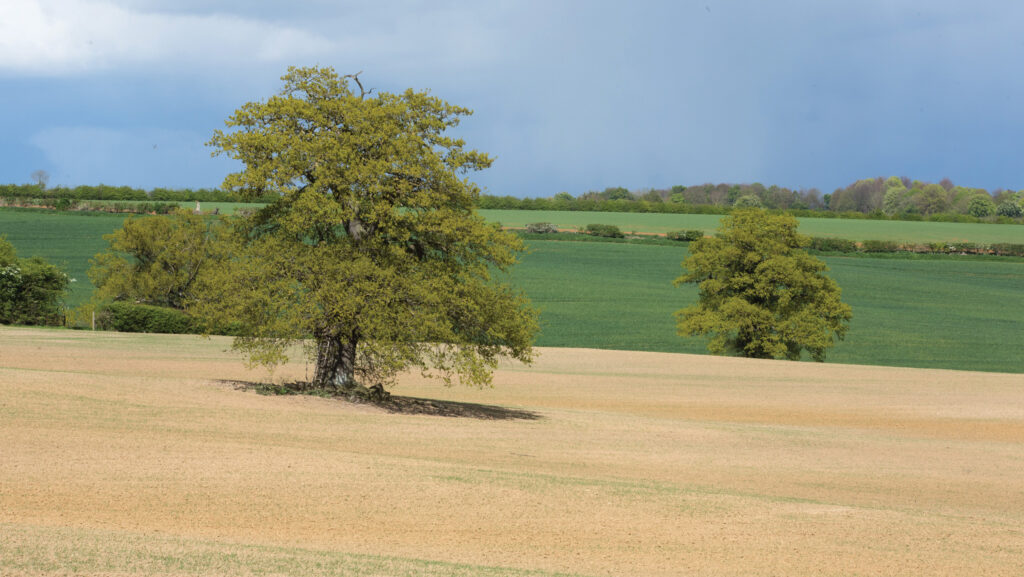Business Clinic: Neighbour may be encroaching on our land
 © Tim Scrivener
© Tim Scrivener Whether it’s a legal, tax, insurance, management or land issue, Farmers Weekly’s Business Clinic experts can help.
Here, Jessica Moore, solicitor in Thrings’ agricultural litigation team, advises on how to address possible land use without permission by a neighbour.
See also: Business Clinic: public footpath across proposed contracting yard – can we divert it?
Q: We are worried that a neighbouring farm has been encroaching onto some arable land we own.
What can we do to address this and ensure our land isn’t used without our permission?
A: It’s a tough conversation to have if you think your land is being used without your consent, but it’s important you act on your suspicion.
It is usually the case that a deed or first transfer document will assist in establishing where a boundary is.
In some cases, physical boundary markers such as longstanding walls, fences and hedgerows might also help to identify where land ownership begins and ends.
However, this isn’t always the case and boundaries can blur over time.
The risk is that neighbours can almost become ‘squatters’ if they are using land that doesn’t belong to them, and so you may be at risk of losing some of your land through adverse possession.
Adverse possession
Adverse possession is a means by which someone can acquire the title to land they do not legally own by physically possessing it for the necessary period of time.
For a claim to be successful, it must meet three requirements:
- The applicant must show factual possession of the land being claimed
- There must be a demonstrable intention to possess the land
- The possession of the land has to be without the owner’s permission/consent.
There are different time periods which need to be met depending on whether the land is registered with the Land Registry or unregistered.
If the land is registered then typically the time period is 10 years. If it is unregistered, the time period is 12 years.
Recently the Supreme Court ruled that in claiming registered land through adverse possession, the applicant need only have a “reasonable belief” that the land belonged to them for any 10-year period before making a claim on the land for it to be successful.
Paragraph 5(4) of Schedule 6 to the Land Registration Act 2002, states that 10 years of reasonable belief of ownership is required for registration, but what the court was required to consider, and what they decided against, was whether that period had to be the 10 years immediately preceding the date of the application.
Ten years is not a long time in the world of farming, especially if the encroachment happens across multiple owners, and so it is important to act.
Gather historical evidence
The first thing you will want to do is to build up your legal defence of the land, so gather the earliest historical evidence available.
Any deeds, transfer documents, reports/surveys, Ordnance Survey mapping and photographs that show the boundary and extent of the land historically are important to consider and, depending on the circumstances, may be very useful in court.
Obtaining a high-quality boundary survey, ideally from a specialist chartered land surveyor, may also be an important step as they can assess the features on the ground, which may assist in interpreting where a boundary is.
Whether you are already in a dispute or not, it is important that you continue to inspect your property, keeping an eye out for any further unused land or property boundaries that could be at risk.
This can help ensure no one is occupying the land without permission. You should pay particular attention to any signs of occupation, use or attempts to create a boundary feature such as fences.
Where there is potential occupation of your land without permission, you will need to take swift action. This may start by simply asking them (politely) to leave or remove their encroachments.
If they refuse, then service of a formal notice requiring them to vacate, or the sending of a “letter before action”, might be appropriate.
Be vigilant of disputes arising and bear in mind that any resolution of a dispute over a boundary should be formally documented to protect you in the future.
If, however, you decide to allow someone to use your land, give them permission in writing as it clearly demonstrates they are not using the land adversely and both parties acknowledge who owns the land.
To be sure not to grant any property rights to a neighbour, and to ensure that you protect yourself fully, it would be wise to seek specialist legal advice.
Do you have a question for the panel? Outline your legal, tax, finance, insurance or farm management question in no more than 350 words and Farmers Weekly will put it to a member of the panel. Please give as much information as possible. Email your question to FW-Businessclinic@markallengroup.com using the subject line “Business Clinic”.
